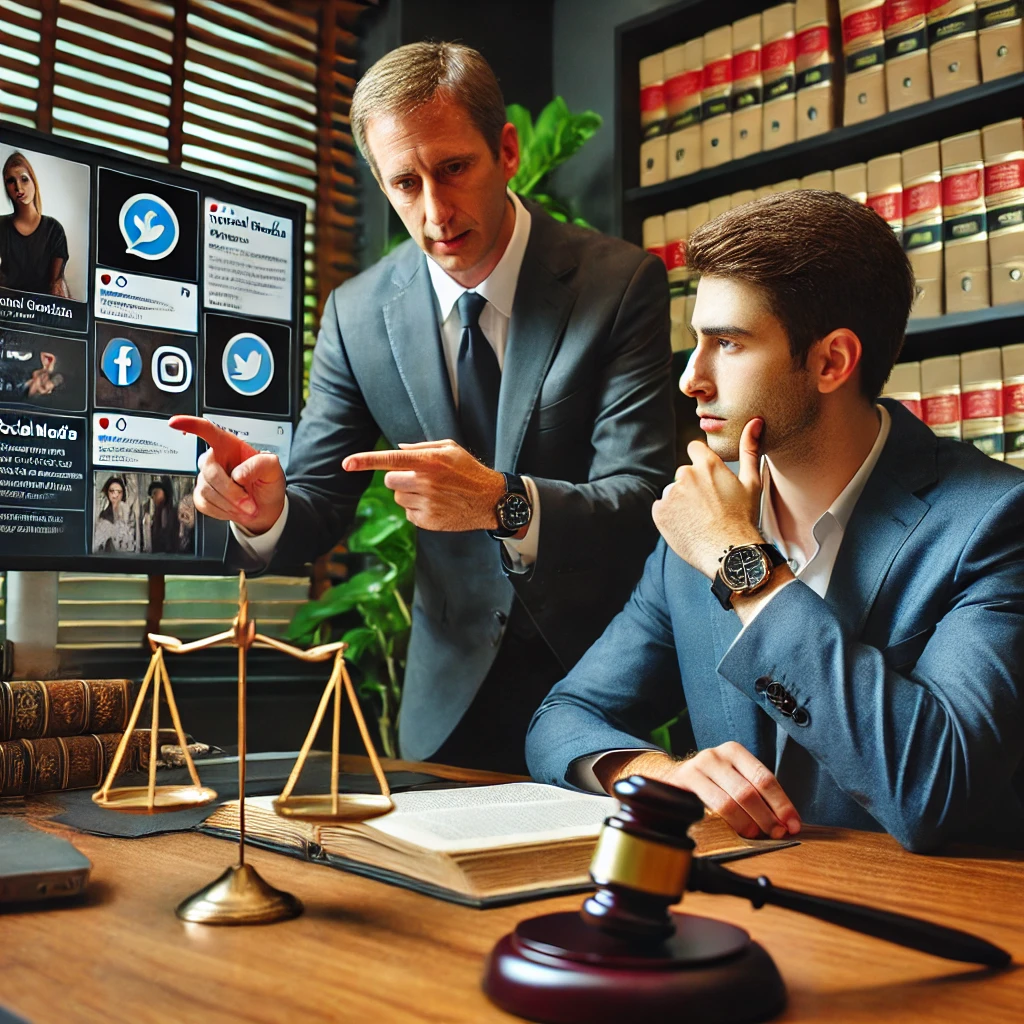In today’s digital age, social media plays a pivotal role in various aspects of our lives, including legal matters. One area where social media has a significant impact is in personal injury cases. Understanding how your online presence can affect your case is crucial for anyone involved in a personal injury claim.
The Double-Edged Sword of Social Media
Social media platforms like Facebook, Twitter, Instagram, and LinkedIn can serve as both a boon and a bane in personal injury cases. While they offer a platform to connect with friends and family, they also present potential pitfalls for plaintiffs in personal injury lawsuits.
Evidence Gathering
One of the primary ways social media impacts personal injury cases is through evidence gathering. Defense attorneys and insurance companies often scour social media profiles to find evidence that can be used against plaintiffs. For instance, if a plaintiff claims to have sustained severe injuries limiting their mobility but posts pictures of themselves engaging in physical activities, this can severely undermine their case.
Inconsistencies and Contradictions
Inconsistencies between a plaintiff’s claims and their social media activity can be detrimental. Courts and insurance companies scrutinize the plaintiff’s social media posts for any contradictions to their injury claims. Even seemingly innocuous posts or comments can be misconstrued and used to cast doubt on the plaintiff’s credibility.
Best Practices for Social Media Use
Given the potential for social media to impact personal injury cases negatively, here are some best practices to follow:
- Review Privacy Settings: Ensure your social media accounts have strict privacy settings. This limits the visibility of your posts to trusted friends and family.
- Think Before You Post: Avoid posting content that could be misinterpreted or used against you. Refrain from discussing your injury, the accident, or the ongoing legal proceedings.
- Monitor Tags and Comments: Be mindful of what others post about you. Untag yourself from posts and photos that may be inappropriate or harmful to your case.
- Consult Your Attorney: Before making any social media posts, consult with your attorney. They can provide guidance on what is safe to share and what should be avoided.
Legal Assistance and Social Media Management
Navigating the complexities of a personal injury case in the age of social media requires professional guidance. Hiring an experienced personal injury attorney is essential. They can help you manage your social media presence effectively and ensure that your online activities do not jeopardize your case.
Why Choose Blanford Law
At Blanford Law, we understand the intricate relationship between social media and personal injury cases. Our team of skilled attorneys provides comprehensive legal support, ensuring that your case is handled with the utmost care. We guide our clients on best practices for social media use and develop strategies to counter any adverse evidence gathered from social media.
Conclusion
Social media is an integral part of modern life, but its impact on personal injury cases cannot be underestimated. By understanding the potential pitfalls and adopting careful social media practices, plaintiffs can protect their cases from being undermined. With the support of a knowledgeable attorney, you can navigate your personal injury case successfully, despite the challenges posed by social media.
Review our client resources here
Contact us anytime for your urgent legal needs.
About Blanford Law:
We are no-nonsense, relentless, fair, and honest. We are great listeners instead of fast talkers, that is just who we are. More than 20 years ago, Ken began practicing law with a deeply-seeded belief that every person has the right to the best legal representation available. He built his law firm on that belief. Another belief that he strongly adheres to is his fundamental belief that clients deserve respect, with no assumptions or preconceived notions. If you or someone you know is accused of a crime or injured as a result of the negligence of another, please have them call us at 253-720-9304 or email us info@blanfordlaw.com
Additional Resources
Understanding RCW 5.68.010: Protection from Compelled Disclosure
This article explains RCW 5.68.010, which protects individuals and certain professions from being compelled to disclose confidential information in legal settings. It highlights the law’s importance in safeguarding privacy and professional ethics.
Legal Analysis: The Boundaries of Necessity Defense in Civil Disobedience Cases – State of Washington ex rel. Lawrence H. Haskell, Respondent v. Spokane (13 Wn. App. 2d 573, Wash. Ct. App. 2020)
This article provides a legal analysis of the State of Washington v. Spokane case, focusing on the use of the necessity defense in civil disobedience cases. It examines the limits of this defense and its application in recent legal challenges.
Understanding Negligence in Personal Injury Cases in Washington State
A comprehensive guide to understanding negligence in Washington State personal injury cases. This article covers the key elements needed to prove negligence, the legal responsibilities of individuals, and how fault is determined in injury cases.
Understanding Washington State RCW 5.40.060: A Legal Perspective
This article explains RCW 5.40.060, which addresses the admissibility of certain evidence in civil cases. It outlines how the statute affects liability claims and the introduction of evidence related to contributory negligence.

